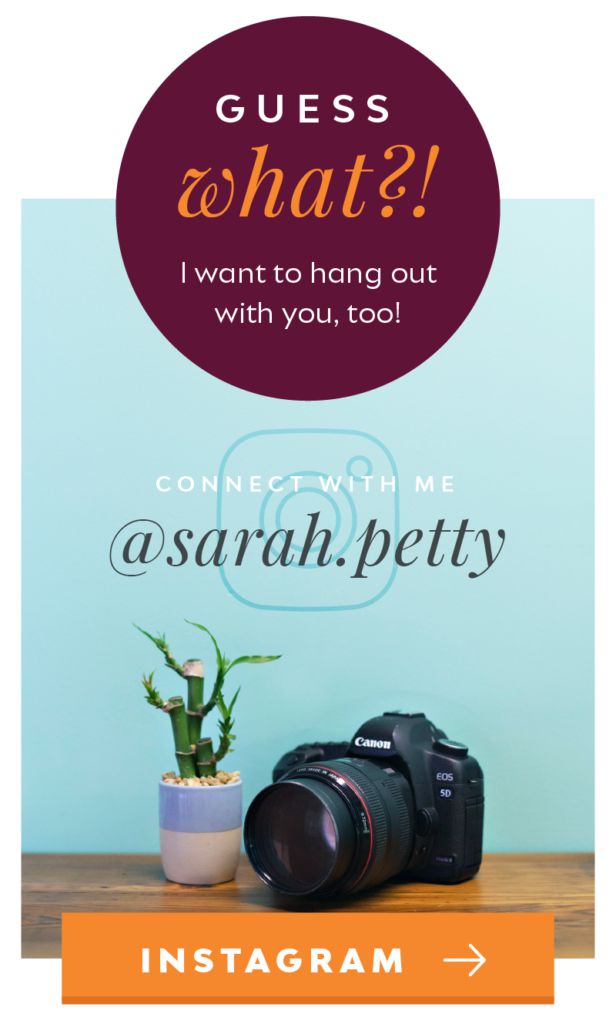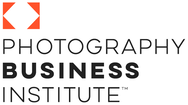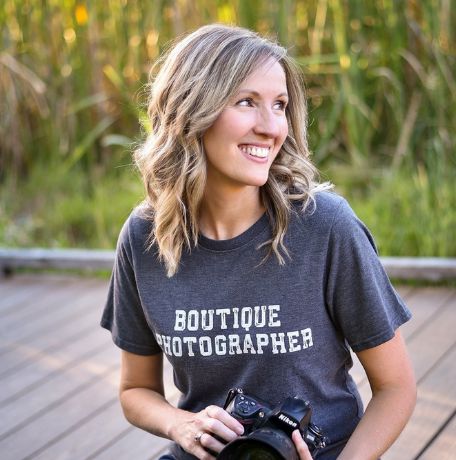Ever wish you could do more for the causes and charities that deeply move you?
Do you long to make a bigger impact?
I bet you do because you’re a photographer.
I know that photographers have the biggest hearts on the planet.
And helping others feels really good.
Today, I’m interviewing a few of my students who are lifting up their favorite charities and causes as they grow their photography businesses.
I want to show you a few fresh ideas that can spark your giving this season.
Sarah Petty:
Hello, Meghan Hughes of Meghan Renee Photography.
Thank you for being here and sharing.
You are the charity queen because, this year, you’ve done Pooch Playoffs, Mom and Me, Pink Out, I’m Possible, and Making Spirits Bright.
You’ve just jumped in with both feet. What inspires you to do that?
Megan Hughes:
Hi, Sarah.
Thanks for having me.
I’ve just always been the type of person that needs to make a difference.
It’s something that I need in order to be happy in my life.
Animals, in particular, are something that I’m really passionate about.
That’s why I wanted to do so many different things for charities and rescues in the area.
Sarah Petty:
Let’s talk about the pet events.
Talk a little bit about what marketing activity you did with your photography business with pets.
Meghan Hughes:
I did Making Spirits Bright back in November.
That was to benefit ACCT Philly, which is the city animal shelter.
I’m actually a volunteer there myself.
That’s who I work with to photograph the cats and dogs to help them get adopted.
We had people come in with their dogs and get Christmas photos and things like that.
We raised $1,100 for them.
Then, in January/February, I did Pooch Playoffs, which has been my biggest fundraiser this past year.
It really lets the dogs shine, doing this really cool bracket-style competition and photographing them.
With Pooch Playoffs, I raised money for Philadoptables.
They’re an organization in the Philadelphia area.
We raised $1,400 for them.
I have clients tell me all the time that they can’t wait to do it again.
It was really fun and a great way to bring in different people throughout the community and to this giving spirit.
Sarah Petty:
Wow.
The Pooch Playoffs was one that a lot of our students did around the country.
I think a lot of people, especially heart-centered photographers, think that they can do things for charity once they start making a lot of money.
I know that’s what I thought when I first started my business.
But what have you learned through doing these about being able to help the charity but also build your business?
Your Photography Business Can Help You Do Good
Meghan Hughes:
That’s what I really struggled with.
There’s this ingrained idea that, to do good, you have to sacrifice.
If you do, then you’re not really helping, or you’re not doing it from the right place.
I came into my business with the idea of wanting to make the world a better place.
I thought because I was fundraising and getting money out of it that I was a fraud.
But over time, especially with Pooch Playoffs, seeing how much good came out of that, it just made me realize that you can do good with your business.
I’ve had this huge shift in my mindset.
The winning dog, Buster, actually just passed away a couple of weeks ago.
Back in March, she got this huge portrait of him for the wall.
That was her once-in-a-lifetime dog.
She’s devastated, of course, but she has this heirloom piece of artwork on her wall of her dog.
If I didn’t do that with my business, she would never have that portrait.
I know it just means so much to her.
I think just going through Pooch playoffs and all these different charity initiatives there’s no way I could do that on my own as an individual person.
I’m able to do that and connect all these community members and businesses together through my business.
One of my favorite sayings is actually one of yours.
“When you do well, you can do good.”
I love that.
I want to build up my own business while I’m helping others and I used to think that wasn’t possible, but clearly, it is.
It’s just been awesome to learn that you can make a difference in the world in so many different ways, but especially through your business.
You can really lift up these small businesses and these organizations in a way that you wouldn’t be able to just on your own.
Sarah Petty:
Oh my gosh, I love it.
“If you do well, you can do good.”
Thank you for being here, Megan.
That was so helpful.
Now, I’m here with another awesome student, Jen Robinett of JLyn Portraits.
I want to chat with you about who you partnered with to raise money for charity.
What was the charity?
Jenn Robinett:
I partnered with a local humane society called West Columbia Gorge Humane Society.
They’re actually in a neighboring town about 25 minutes from me.
I partnered with them to get word out that I had started photographing dogs.
We did it last January and they helped me to spread the word, get some information out, and, of course, accepted the donation that I raised for them.
I raised $1,584.
Sarah Petty:
Doesn’t that feel so good?
Putting these together takes some coordination and some work.
You have to educate the charity on how it works.
I’m sure you learned a lot of things doing this.
Can you talk about that?
What did you learn in this process?
Jenn Robinett:
I learned a lot about the process and a lot about myself.
It was very different from the first charity fundraiser I did.
I felt like it was more real this time.
I was going in with more information and I knew more about what to do, but I really learned about having a really good charity.
Sarah Petty:
When you say “really good charity,” can you define that?
Because really all charities are good, but certain charities are a better fit for us to partner with.
Can you elaborate when you realized that all charities are not the same when you’re looking for someone to partner with?
Jenn Robinett:
A really good charity is one who isn’t going to just sit there and let you do all the work.
They did get information out for me, but not as much as I would’ve liked them too or to the people that I would’ve liked them to get it out to.
I think that if I did partner with this charity again, I would want to get in front of the board and talk to the board directly about what I expect of them and what their expectations of me would be in order to really spread the word.
Sarah Petty:
The purpose of partnering with the charity is that you get access and exposure to their donor list.
People who are giving money away, what a great target audience for us as photographers.
Talk about how you’ve grown as a person.
Because I know the first time everybody does something it’s very scary.
You Have to Be Excited About What You Are Doing
Jenn Robinett:
This is my favorite part and probably something that I’ve known about myself for a long time.
What Pooch Playoffs really helped me to see about myself is that I love the masterminding.
I was scared about it at first.
It was really my first time because the first charity that I did I actually didn’t do this.
I think one of the biggest keys is that you have to be excited about what you’re doing.
Sarah Petty:
I love that.
When you say masterminding, do you mean in your small group?
Jenn’s part of our advanced photography business coaching program, Peak Performance Coaching, where this group created the Pooch Playoffs.
Or do you mean masterminding within your community, or both?
Jen Robinett:
Both.
I had so much fun working with my small group on just creating this concept of Pooch Playoffs and how it was going to work.
But then, once we got our legs underneath us and all the elements that we needed to go out into the community and really do it, that part, I just felt like I really soared.
That whole part was just super fun.
Sarah Petty:
That’s amazing.
I love the power of a group.
Hey, Jenn, thank you so much for being here today.
This was so exciting.
You got me inspired.
Sarah Petty:
Now, I’m here with Amee McCaughan of Amee McCaughhan Photography.
Talk to us about coming into this mindset of partnering with the charity.
Who did you partner with?
How did you decide to do it?
Amee McCaughan:
My charity was Wright-Way Rescue.
They are a local animal rescue organization that does amazing work.
I adopted my very first dog from them and had a really good experience with that rescue and I always wanted to do something for an animal-related charity..
When I was listening to the 10 Session Challenge in Peak Performance Coaching, I thought I had been sitting on this idea for long enough and it was time to try it.
Once I decided to try it, I got 10 sessions booked in a month for this charity that I’m passionate about.
I formed this fundraiser that I started marketing in memory of my dog, whose name was Roo.
I first went to Wright-Way Rescue, and I told them the backstory and they said it was an amazing idea.
They asked me what my goals were and how they could support me.
My goal was to have at least 10 participants, raise $1,000 in the month of May and then be able to hand that check over to them.
What I needed from them was marketing.
I was giving people a photo magnet for their $100 donation.
The nice thing about that was that we had a reason to meet up after their session to look together at their images and pick their favorite.
They would also get the swag basket.
Everyone got a nice, generous swag basket, lots of fun treats and toys for their dogs, and a chance to win a larger gift basket because one of these pet businesses gave me so much stuff that I had a larger basket for somebody to have a chance to win.
I ended up meeting my goal, and raised $1,000, which was awesome.
I was just so happy, proud, and excited to finally have done this instead of just thinking about it and I met some amazing people doing it, too.
Sarah Petty:
You were able to meet your goal of $1,000 for charity, and you were able to offer artwork to your clients.
How did that go?
Amee McCaughan:
Eight people bought artwork.
In addition to the $1,000 I raised for the charity, I actually made an additional $4,000 in art sales for my photography business, which is great to do in one month.
Sarah Petty:
Yeah, and especially the lifetime value of a client.
They’ll keep coming back to you and referring to you.
What did you learn in this process?
Anything that you would do differently next time?
Amee McCaughan:
One of the places I was getting hung up was the physical flyer.
I went and did multiple reprints of the flyer, and the end, it was more social media and word of mouth that got people to sign up and people talking about it.
I’m not sure that it’s necessary to print flyers.
Also, I think I underestimated how much time I was going to dedicate to it.
I thought I could meet with these people and do these quick 20 minutes sessions with their dogs, but I ended up spending at least an hour with each participant, if not more, just because I enjoyed being around them and their dogs.
Sarah Petty:
I love it.
As boutique photographers, we don’t have to just slam them in and slam them out.
We want to invest more time with them because that gives you time to educate them on your model and what you offer.
Great job to you.
Great job of supporting the charity.
Thanks, Amee, for being here.
I know you inspired a lot of people.
I hope today has shifted your mindset of, “I can’t do anything for charity until I’ve got all of my problems solved,” because we never will.
We will never be fully ready.
But what’s really cool is you can partner with charities to build your photography business.
When you do well, you can do good in the world.
That’s what I want to leave you with today.
Do well, and you can do good.









